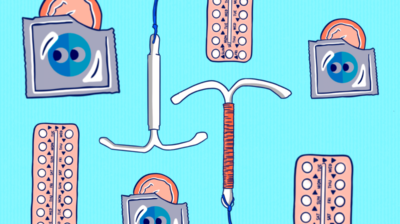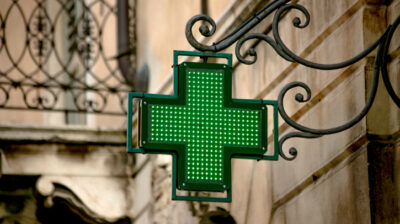When should I take emergency contraception?
If your protection fails or have sex without using protection emergency contraception can help prevent pregnancy

Emergency contraception is something that can prevent pregnancy when you’ve had sex, without using protection. This might happen if you’ve forgotten to use protection, if something goes wrong with your protection or if you were sexually assaulted.
Remember, emergency contraception does not protect against sexually transmitted infections, and its effectiveness really does depend on how soon after the unprotected sex it is taken.
When should I take emergency contraception?
You should take emergency contraception:
- If you had sex without contraception
- If you were forced to have sex or don’t remember what happened the night before
- If your condom split or something stopped your contraceptive working
- If you missed your birth control pills for two days before having sex or were vomiting in the last few days
What types of emergency contraception are there?
There are two types of emergency contraception: an emergency pill and the coil or IUD. Emergency pills are usually called the morning-after pill. You can take some pills up to five days (120 hours) after sex and some pills (72 hours) after sex. The sooner you take it, the better. The morning after pill prevents unwanted pregnancy in 95% of women who take it correctly and as close to the time of the unprotected sex as possible.
If more than 72 hours have passed since the unprotected sex, then the IUD can be used. The IUD is a small device fitted inside a woman’s womb by a doctor. You must have it inserted within five days of sex, and it must be worn until your next period.
Where can I get emergency contraception?
The emergency contraception is available from doctors or pharmacies. Phone and check with the doctor in advance, as not all doctors will prescribe emergency contraception.
Over the counter emergency contraception with no prescription
NorLevo is available over the counter from pharmacists and can be taken up to three days (72 hours) after unprotected sex.
EllaOne is now available over the counter from pharmacists, and can be taken up to 5 days (120 hours) after unprotected sex. EllaOne is available without a prescription, following a consultation with registered pharmacists. However EllaOne can still be prescribed by a GP and is free of charge with the medical card. It’s most effective if taken as soon as possible after having unprotected sex and has a pregnancy rate of 0.9% if taken on day 1 post unprotected sex. Ask a pharmacist for a private consultation or talk to a GP or Family Planning Clinic about the best option for you.
How much does emergency contraception cost?
Women and people who can get pregnant between 17 to 35 can get the emergency contraception pill for free. This can be given over-the-counter at participating pharmacies. You do not need to go to your GP for a prescription.
What are the effects from emergency contraception?
You might feel sick or dizzy after taking the emergency pill. This is normal, but if you feel sick for more than two hours speak to your doctor. Your periods may be irregular or come earlier or later than normal for three months after taking the morning after pill.
Protecting your sexual health when having sex
If you are having sex you need to protect yourself from STIs and HIV as well as unplanned pregnancies. There are many great options to help protect your sexual health, but none of them are 100% effective. Even if you use condoms every time you have penetrative sex, you are still at risk of getting genital warts and herpes, as these can be passed through skin-to-skin contact. Going for an STI check or taking a home STI testing kit with a partner before having sex, can be a great way of protecting yourself and those you have sex with against STIs and HIV. However, not all STI checks check for all STIs, so it is important to speak to your healthcare provider and ask them what are being tested for as part of your screening.
Discussing with your sexual partners the type of contraception or protection options available to you, and agreeing on a type that works for everyone involved can help to reduce the risk of pregnancy, STIs and HIV. Looking out for sores or symptoms on a partner’s genitals before having sex with them, can help to identify STIs that they may not be aware of. If you do see any signs that someone may have an STI, do not have sex with them until you know for certain it is safe to do so. Asking someone about their sexual health history is the responsible thing to do before having sex, and it should not be taken as an insult if someone asks you about yours.
Remember: The age of sexual consent in Ireland is 17. If you’re over 16, you can consent to medical treatment including any treatment or tests needed.
Feeling overwhelmed and want to talk to someone?
- Get anonymous support 24/7 with our text message support service
- Connect with a trained volunteer who will listen to you, and help you to move forward feeling better
- Whatsapp us now or free-text SPUNOUT to 50808 to begin.
- Find out more about our text message support service
If you are a customer of the 48 or An Post network or cannot get through using the ‘50808’ short code please text HELLO to 086 1800 280 (standard message rates may apply). Some smaller networks do not support short codes like ‘50808’.






